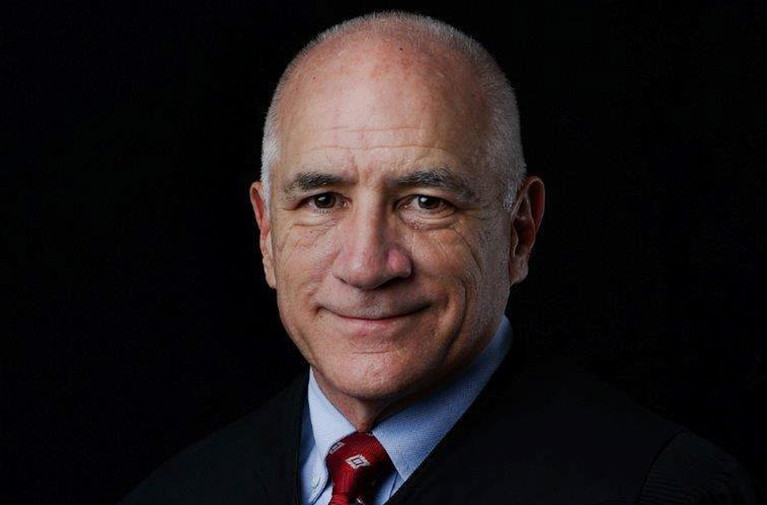In a poignant farewell that has reverberated through legal circles, Senior U.S. District Judge Robert Scola Jr. retired last Friday after three decades on the bench, delivering a stark warning about the jury trials disappearing from the nation’s courtrooms. His words cut deep, highlighting a silent erosion threatening the core of American democracy.
As Judge Scola stepped down from the U.S. District Court for the Southern District of Florida, he didn’t dwell on his storied career prosecuting murder cases in Miami or overseeing high-profile civil disputes. Instead, he zeroed in on a troubling trend: the decline in jury trials that’s left a generation of lawyers trial-averse. “We have a generation of lawyers who have never tried jury trials,” Scola lamented in his final reflections. This isn’t just a courtroom quirk—it’s a systemic shift reshaping how justice unfolds across the United States.
Scola’s journey to the federal bench began in the trenches of Miami’s state courts, where he honed his skills as a prosecutor tackling complex murder cases. Appointed to the federal level in 2011 by President Barack Obama, he took senior status in October 2023 but delayed full retirement to mentor his last law clerk. Over 30 years, he presided over everything from securities fraud battles to immigration showdowns, earning praise for his no-nonsense approach. One former clerk, now a practicing attorney, recalled Scola’s emphasis on fairness: “Every single decision was made entirely on two factors: the facts and the law.”
But Scola’s parting shot wasn’t nostalgic. He urged young attorneys to push past excuses for settling cases early. “I tell young lawyers there has never been a case that is truly ready for trial,” he said. “If you are looking for a reason not to go to trial, you’ll find it in every case.” His concern stems from a broader reality: federal criminal cases reaching jury trials now hover below 2%, down sharply from decades ago, according to recent judicial data.
Experts echo Scola’s fears. Shari Diamond, a law professor at Northwestern University, co-authored a study revealing mandatory minimum sentences and damage caps as key culprits in this federal judge retirement wave of settlements. “Juries are worth the cost,” Diamond told researchers, pointing to how these policies pressure defendants and plaintiffs alike to avoid the uncertainty of a verdict. In civil arenas, mandatory arbitration clauses—often buried in fine print—further sideline citizen juries, funneling disputes into private forums.
Public reactions have been swift and varied. On social media platforms like X (formerly Twitter), legal professionals and civil rights advocates amplified Scola’s message, with hashtags like #SaveTheJury trending briefly last weekend. “This is a wake-up call for our American jury system,” tweeted one Miami-based defense attorney, garnering thousands of likes. Consumer groups, meanwhile, worry about everyday Americans losing their voice in disputes over faulty products or workplace harms.
For U.S. readers, this hits close to home. In an era of polarized politics, the disappearing jury trials undermine trust in the justice system, potentially tilting power toward corporations and government prosecutors. Economically, it means fewer checks on big business—think quicker settlements in class-action suits that shortchange victims. Lifestyle-wise, ordinary folks face steeper odds in personal injury claims, where arbitration favors the deep-pocketed. Politically, it fuels debates over sentencing reforms, with figures like Senator Elizabeth Warren calling for an end to mandatory minimums to revive jury roles.
User searches spike around these issues, with queries like “why are jury trials declining” surging 25% in the past month per Google Trends data. This reflects a growing intent among Americans to understand threats to their constitutional rights. Legal watchdogs advise proactive steps: demand transparency in arbitration agreements and support bills like the Forced Arbitration Injustice Repeal Act, which aims to restore jury access in consumer cases.
Scola, now 70, plans a low-key post-retirement life—no arbitrations or beach margaritas for him. Yet his legacy pushes the legal community to confront this fade-out. As one colleague put it, “He’s reminding us that juries aren’t relics; they’re the heartbeat of fair play.”
Looking ahead, the outlook hinges on reform. If Congress tackles sentencing guidelines and arbitration mandates, jury trials could rebound, bolstering democratic participation. Without action, though, Scola’s warning risks becoming prophecy: a justice system where citizens watch from the sidelines, not the jury box. The jury trials disappearing trend demands urgent attention to safeguard the decline in jury trials for future generations.
By Sam Michael
October 6, 2025
Follow and subscribe to us for push notifications on breaking legal news—stay informed, stay empowered!
